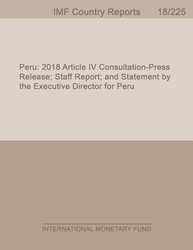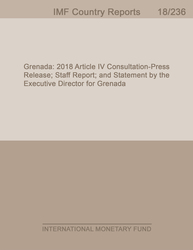
People’s Republic of China: Financial Sector Assessment Program-Financial System Stability Assessment-Press Release; Staff Report; and Statement by the Executive Director for the People’s Republic of China
People’s Republic of China: Financial Sector Assessment Program-Financial System Stability Assessment-Press Release; and Statement by the Executive Director for the People’s Republic of China
READ MORE...
Volume/Issue:
Volume 2025
Issue 100
Publication date: April 2025
ISBN: 9798229009560
$20.00
Add to Cart by clicking price of the language and format you'd like to purchase
Available Languages and Formats
| English |
Prices in red indicate formats that are not yet available but are forthcoming.
Topics covered in this book
This title contains information about the following subjects.
Click on a subject if you would like to see other titles with the same subjects.
Banks and Banking , Finance , LGFV debt risk , emergency liquidity assistance framework , FSSA recommendation , mission to the People's Republic of China , bank capital , LGFV debt pose risk , transparency policy , LGFV risk mitigation , FSSA report , local government financial vehicles , China development bank , warrant attention , Financial Sector Assessment Program , Financial sector stability , Financial sector risk , Stress testing , Commercial banks , Global
Also of interest
Summary
The FSSA found that since the last FSAP in 2017, the authorities have made notable progress in strengthening financial supervision and regulation, continuously implementing international regulatory standards, and enhancing systemic risk monitoring. Due to regulatory reforms they also made important reductions, in risks arising from non-bank financial institutions.
While bank capital and liquidity levels appear adequate overall, the FSAP concluded that financial stability risks are elevated. Rising vulnerabilities from the property sector downturn and widening strains in highly leveraged local government financial vehicles (LGFV) warrant attention as declining economic growth could affect credit portfolio quality and accommodative monetary policy is weakening banks’ organic profitability, with smaller banks—particularly those with riskier business models—being more vulnerable.
Copyright © 2010 - 2026
Powered by:
AIDC



